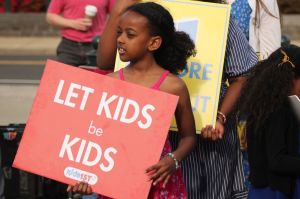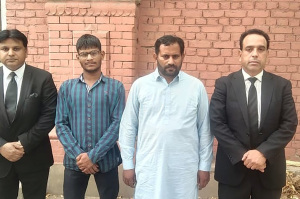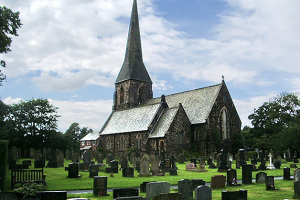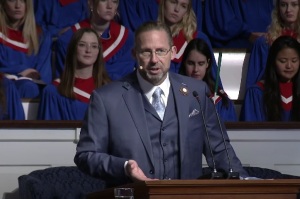Supreme Court Rules New York Town Can Hold Christian Prayers Before Meetings
The United States Supreme Court has ruled in favor of a New York town that held Christian prayers before the start of their town meetings.
In Town of Greece v. Galloway, the highest court in the land ruled 5 to 4 on Monday that Greece could select Christian ministers to pray before their town meetings.
Justice Anthony Kennedy delivered the opinion of the Court, and was joined by Chief Justice John Roberts, Justice Samuel Alito, with Justices Antonin Scalia and Clarence Thomas concurring.
Dissenting from the decision in favor of Greece were Justices Stephen Breyer, Elena Kagan, Sonia Sotomayor and Ruth Bader Ginsburg.
"The Court must decide whether the town of Greece, New York, imposes an impermissible establishment of religion by opening its monthly board meetings with a prayer. It must be concluded … that no violation of the Constitution has been shown," reads the Kennedy opinion.
Kennedy invoked the 1983 Supreme Court case Marsh v. Chambers as the source of why the Court ruled in favor of Greece.
"In Marsh v. Chambers, 463 U. S. 783, the Court found no First Amendment violation in the Nebraska legislature's practice of opening its sessions with a prayer delivered by a chaplain paid from state funds," wrote Kennedy.
"The decision concluded that legislative prayer, while religious in nature, has long been understood as compatible with the Establishment Clause. As practiced by Congress since the framing of the Constitution, legislative prayer lends gravity to public business, reminds lawmakers to transcend petty differences in pursuit of a higher purpose, and expresses a common aspiration to a just and peaceful society."
In 2008, Greece was sued by residents Susan Galloway and Linda Stephens who argued that the town meeting prayers were unconstitutional, as they allegedly showed a favoritism toward Christian ministers and Christian prayers.
Galloway and Stephens were represented by the Washington, D.C.-based group Americans United for Separation of Church and State.
"Town board meetings are often intimate affairs," stated the Rev. Barry W. Lynn, executive director of AUSCS.
"If prayers are delivered in that sort of setting, it's plain to see who participates and who doesn't, and that can easily lead to coercion or ostracizing."
For its part, the Greece Town Board was represented by the Alliance Defending Freedom, based in Scottsdale, Ariz. David Cortman, senior counsel at ADF, said in a statement released last year that "Americans today should be as free as the Founders were to pray."
"The Founders prayed while drafting our Constitution's Bill of Rights, and the Supreme Court has ruled that public prayer is part of the 'history and tradition of this country,'" said Cortman.
"The numerous and significant parties that have filed briefs in this case support the continuation of this cherished practice."
The plaintiffs brought their suit to the U.S. District Court for the Western District of New York, where they were ruled against.
On appeal, the Second Circuit Court of Appeals ruled in favor of Galloway and Stephens, agreeing with them that the prayer policy of Greece was unconstitutional.
Greece appealed the decision to the U.S. Supreme Court, who agreed to hear the case. The New York town received much support from various sources, including the U.S. Department of Justice, who filed an amicus brief supporting their prayer policy.





























